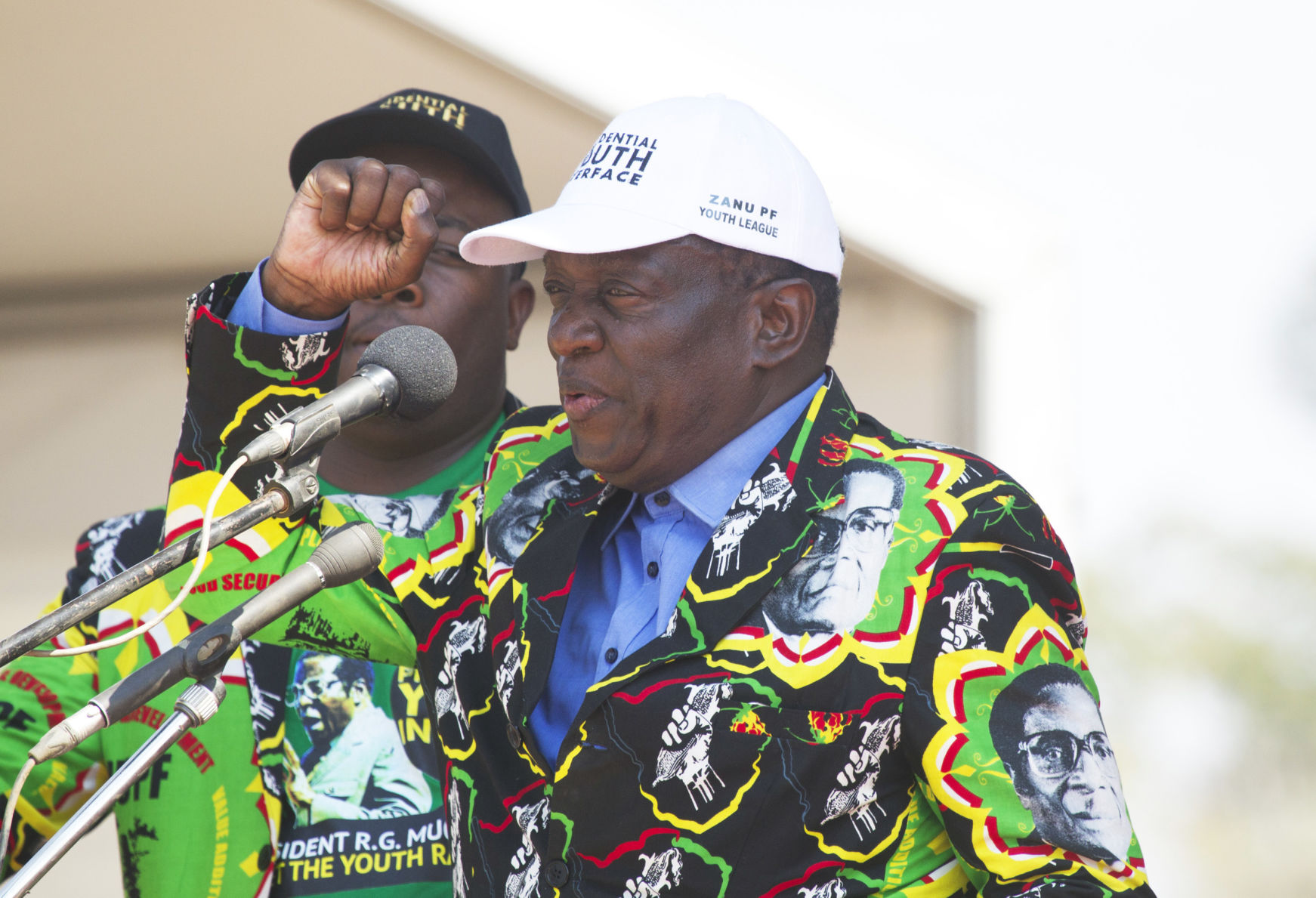HARARE, Zimbabwe (AP) — He was viewed as a likely successor to Zimbabwean President Robert Mugabe, a longtime ally whose close association with the 93-year-old leader dates to the struggle against white minority rule, Now Vice President Emmerson Mnangagwa appears
HARARE, Zimbabwe (AP) — He was viewed as a likely successor to Zimbabwean President Robert Mugabe, a longtime ally whose close association with the 93-year-old leader dates to the struggle against white minority rule, Now Vice President Emmerson Mnangagwa appears to be falling out of favor, deepening the mystery over who will take over from a man who has ruled since independence in 1980.
Mugabe has led attacks on his old friend, reflecting turmoil within the ruling ZANU-PF party in a country where political uncertainty has fueled problems in a deteriorating economy and increased hardship for many Zimbabweans. The criticism of the vice president, one of two presidential deputies, comes ahead of Mugabe’s re-election bid next year and amid a rise in prominence of Defense Minister Sydney Sekeramayi, whose name is popping up more often as a possible successor.
On Thursday, Mnangagwa pledged his “unflinching loyalty” to Mugabe following accusations from Mugabe’s wife, Grace Mugabe, and others that he had misled the country by saying recently that he fell ill because he was poisoned.
The fractured opposition, meanwhile, has been unable to channel national discontent into a strong play for power. The main opposition leader, Morgan Tsvangirai, has health problems and recently received treatment in neighboring South Africa.
“Mugabe survives on pitting one faction against the other. He elevates one faction, discards it when it begins to feel comfortable and props up another one,” said Gabriel Shumba, a Zimbabwean political analyst and human rights lawyer based in South Africa.
The machinations are eerily similar to those that augured the 2014 dismissal of Vice President Joice Mujuru, another former ally of Mugabe who is now an opposition figure. A dominant figure in the ouster of Mujuru who has now set her sights on Mnangagwa is Zimbabwean first lady Grace Mugabe, whose calls for the appointment of a female vice president intensified talk that she eventually wants to take over the top spot from her husband.
So Mnangagwa has dutifully sat through political rallies where the Mugabe couple accused him of leading a faction that seeks power and has endured humiliating barbs from his boss. President Mugabe, for example, told a crowd about allegations that the vice president once left a rival for a woman’s affections paralyzed after forcing him to jump from a multi-story building.
“He was told to make a choice between sitting on a hot stove or jump out of the window. He chose to jump and now he is disabled. He could have refused both options but I guess he was afraid,” Mugabe said at a rally in Bindura town on Sept. 9.
During the remarks, Mnangagwa and his wife sat stone-faced on the dais. And that wasn’t all. Grace Mugabe then piled on, warning Mnangagwa that he might face a similar fate to that of Mujuru, who was also accused of plotting to oust the president.
“I am begging the VP to stop this. I once warned Mujuru and she thought I was joking. Where is she now?” the first lady thundered.
The other vice president, Phelekezela Mphoko, has joined in criticism of his colleague, even though he is not considered a front-runner to succeed Mugabe because he lacks a strong political base.
Zimbabwe’s constitution says that if the president dies, resigns or is removed from office, the vice president who last stood in as acting president takes over for 90 days, following which the ruling party must appoint a person who takes over until the expiry of the former president’s term. Mnangagwa was acting president during Mugabe’s trip to the United Nations last month, while Mphoko has previously assumed the role.
Some analysts point to Sekeramayi, the low-key defense minister, as a possible successor. A medical doctor, Sekeramayi appears acceptable to those wary of Mnangagwa, who was in charge of state security when Mugabe unleashed a North Korean-trained brigade to crush dissent in western Zimbabwe in the 1980s. Sekeremayi’s name was first brought to the fore by Jonathan Moyo, an ally of Grace Mugabe and a critic of a faction associated with Mnangagwa.
At the Bindura rally, Mugabe said he invited Mnangagwa and Sekeremayi to join the independence war at around the same time, making neither of them senior to the other. His wife said Mugabe summoned Sekeremayi when he suffered diarrhea and thought he was dying; she didn’t say when that happened.
“The first family is using the rallies to reconstruct Mnangagwa’s image from a war hero to a careless, cruel and divisive individual, unfit to take over. At the same time, he is painting Sekeremayi as equal to Mnangagwa in terms of seniority in the party,” said Alex Rusero, an analyst based in Harare, the Zimbabwean capital. He speculated: “All this is to cast Sekeremayi as the chosen one.”


